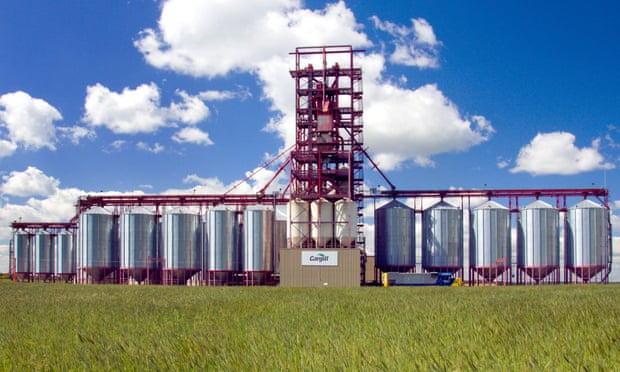Record profits for grain firms amid food crisis prompt calls for windfall tax |
Companies at the centre of the global grain trade have enjoyed a record bonanza amid soaring food prices around the world, raising concerns of profiteering and speculation in global food markets that could put staples beyond the reach of the poorest, and prompting calls for a windfall tax.
The world’s top four grain traders, which have dominated the global grain market for decades – have seen record or near-record profits or sales. They are forecasting demand to outstrip supply at least until 2024, which is likely to lead to even higher sales and profits in the next two years.
Food prices have surged more than 20% this year, according to the UN Food and Agriculture Organisation. About 345 million people are experiencing acute food insecurity, according to the World Food Programme, compared with 135 million before the Covid-19 pandemic.
Olivier De Schutter, a co-chair of IPES-Food (the International Panel of Experts on Sustainable Food Systems) and UN special rapporteur on extreme poverty and human rights, said: “The fact that global commodity giants are making record profits at a time when hunger is rising is clearly unjust, and is a terrible indictment of our food systems. What’s even worse, these companies could have done more to prevent the hunger crisis in the first place.”
Four companies – the Archer-Daniels-Midland Company, Bunge, Cargill and Louis Dreyfus, known collectively as ABCD – control an estimated 70-90% of the global grain trade. “Global grain markets are even more concentrated than energy markets and even less transparent, so there is a huge risk of profiteering,” said De Schutter.
He said this year’s food price surge happened despite what are thought to be abundant global grain reserves, but there was insufficient transparency from the companies to show how much grain they hold and no way to force them to release stocks in a timely way.
“We need to be looking at the grain giants and asking what they could have done to avert the crisis, and what they could be doing now,” De Schutter said.
Cargill reported a 23% increase in revenues to a record $165bn (£140bn) for the year ended 31 May, while Archer-Daniels-Midland made the highest profits in its history during the second quarter of the year.
Sales at Bunge surged by 17% year on year in the second quarter, though its profits were affected by previously incurred charges. Louis Dreyfus reported profits for 2021 up by more than 80% on the previous year, as revenues rose by nearly a quarter to $1.62bn.
John Rogers, an analyst at the credit rating service Moody’s, said it was not surprising that supply constraints and rebounding demand had increased food prices and led to higher profits. “I don’t think they are colluding for outsize profits,” he said, adding that many more companies were also taking an increasing share of global grain markets. “I don’t think they are acting immorally – they’re not intentionally driving up prices.”

He said the profits for grain companies had been increasing overall but their margins had not markedly…
Read More: Record profits for grain firms amid food crisis prompt calls for windfall tax |
